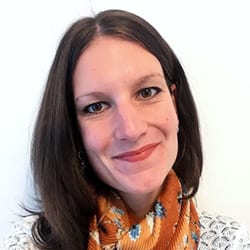How Coaches can Support the Transition to a Sustainable Economy
Human needs are the rationale for economic activity. Human needs, however, are generally presumed to be limitless while the material resources required to fulfill those needs are not. Having essential needs met—such as healthy nutrition, safe housing, good education and a stable environment—is a necessary precondition for us to pursue our livelihoods, participate in society and evolve as a collective.
Yet, our current economic system is characterized by a linear model of value creation and subsequent value destruction. Resources get extracted. Products are made, used and eventually disposed of. Consequently, we deplete our resources while at the same time harm our planet’s ability to regenerate by polluting it. This, in turn, limits our prospects of meeting our needs in the future.
Scholars, as well as practitioners, have suggested an alternative model with resources flowing in circles, keeping our collective assets at their highest possible value at all times. How might we, as coaches, support the transition to a circular, more sustainable economy? What roles do communities play?
Reconnecting with Nature
Nature has always been a positive source of healing and growth for us humans. Our physical, mental, emotional and spiritual lives greatly benefit from a close relationship with nature. Spending time in nature, looking at nature and living in nature creates a sense of wonder and belonging. By moving to cities and spending more time indoors, we have lost parts of this intimate connection. Hence, the harm we are doing to our planet (and ourselves) by impairing biological ecosystems has become less relatable—at least on an emotional level.
Reconnecting with nature allows us to remember our interdependence and sparks a desire to live more sustainably. We, as coaches, can encourage our clients to consider a nature-linked path by offering sessions in the natural environment. In addition to becoming aware of one’s surroundings, consciously taking in what is and feeling the beauty of Mother Earth has the potential to instill deep change. Circular patterns that are inherent in nature can surface and serve as new models to fulfill our needs, personally and economically.
Reframing Value Perceptions
In order to shift to a nature-inspired economy with resources flowing in circles, value needs to be redefined. Short-lived and frequently replaced products must make room for more durable and long-lasting ones. Reuse and repair should become first choice. In addition, companies’ business models ought to change. It is suggested to rent out rather than sell products. This incentivizes proper maintenance and return, as well as maximum resource recovery after use. As a result, accessibility will supersede ownership. In a culture where ownership is associated with security, stability and status, it is inevitable inner work will be needed to adapt and thrive under these circumstances, both individually and collectively.
Here, we as coaches come in again. Working with, acknowledging and understanding clients’ fears, dreams and aspirations helps in reframing their value perceptions. Optimally, coaching functions as catalyst for the creation of new, alternatives ways of living. It might even become a key success factor for a smooth transition to a sustainable economy.
The Benefits of Sharing
A sustainable economy is inevitably an economy that embraces sharing. With today’s technology, it is easier than ever to share, rent, borrow, gift and barter. This reduces initial purchases of products and thus saves resources. The benefits of sharing, though, are not limited to our planet. Sharing creates interactions and strengthens our communities. It is a lifestyle uniting us through a common goal. Moreover, sharing calls for trust—trust from which additional relationships, ideas and projects can arise and enrich our lives. It creates new opportunities to meet our needs while preserving our invaluable resources. Community-building capacities come in handy and could become an essential coaching skill during and after the transition.
As a society, we are invited to reconnect with nature on an individual level, to reframe our value perceptions on a cultural level, and to embrace the benefits of sharing as a collective. Changing our current economic system to a more sustainable one is profound and requires all of us.
© Copyright Melissa Kneubuehler



Nice piece. However when you said sharing…..how do you suggest coaches should share their coaching expertise with other coaches or professionals.
Thanks for your kind feedback Umer Bhutta! In my opinion, there are a great many ways to share knowledge and experience with colleagues. Do you have any coach circles in your environment which you could attend? Or what about setting up a peer-mentoring group yourself? Another approach could be to organize talks and events, inviting professionals and providing space to discuss and exchange ideas (ideally virtually at the moment). Furthermore, starting a blog and engaging with like-minded people on social media would be an option. What is your personal preference? Wish you much success for your endeavors! Best, Melissa